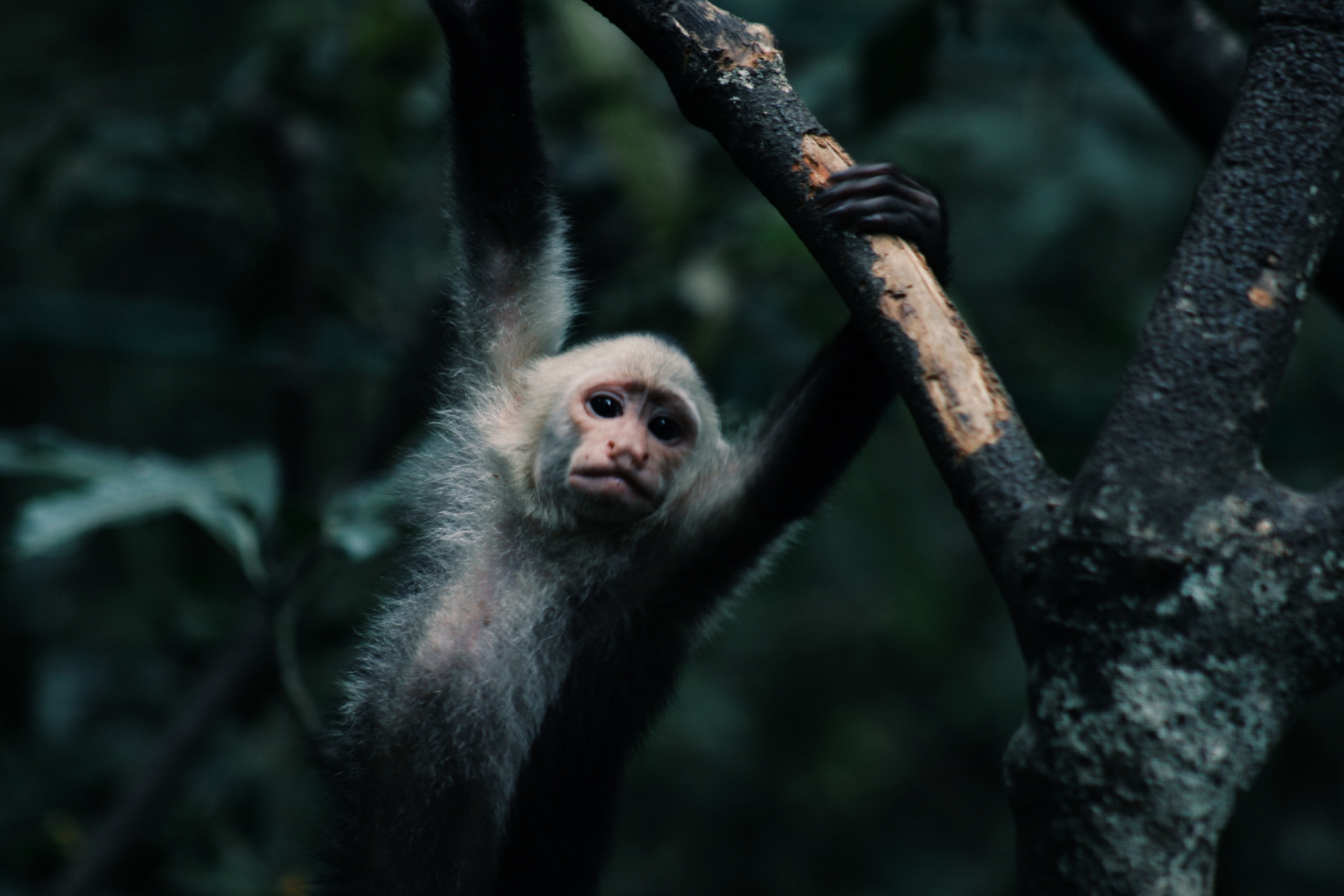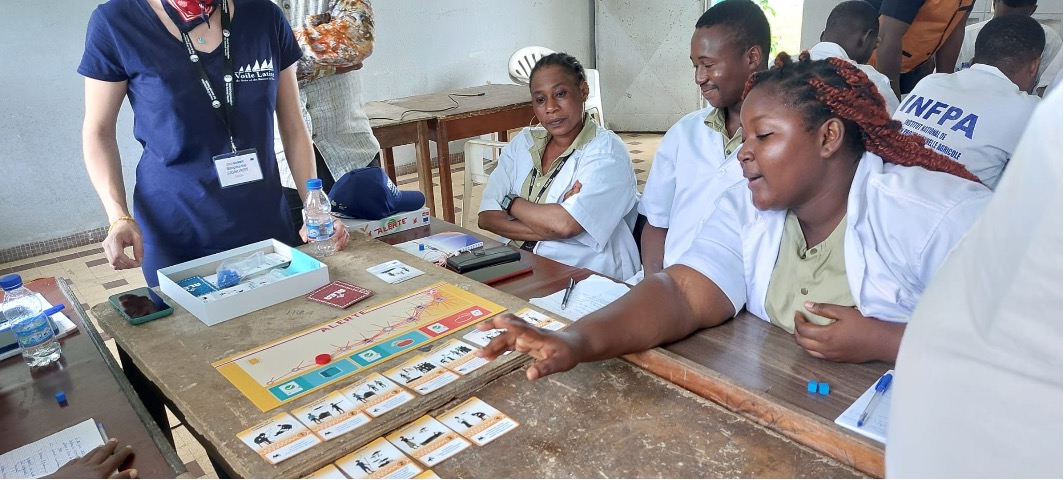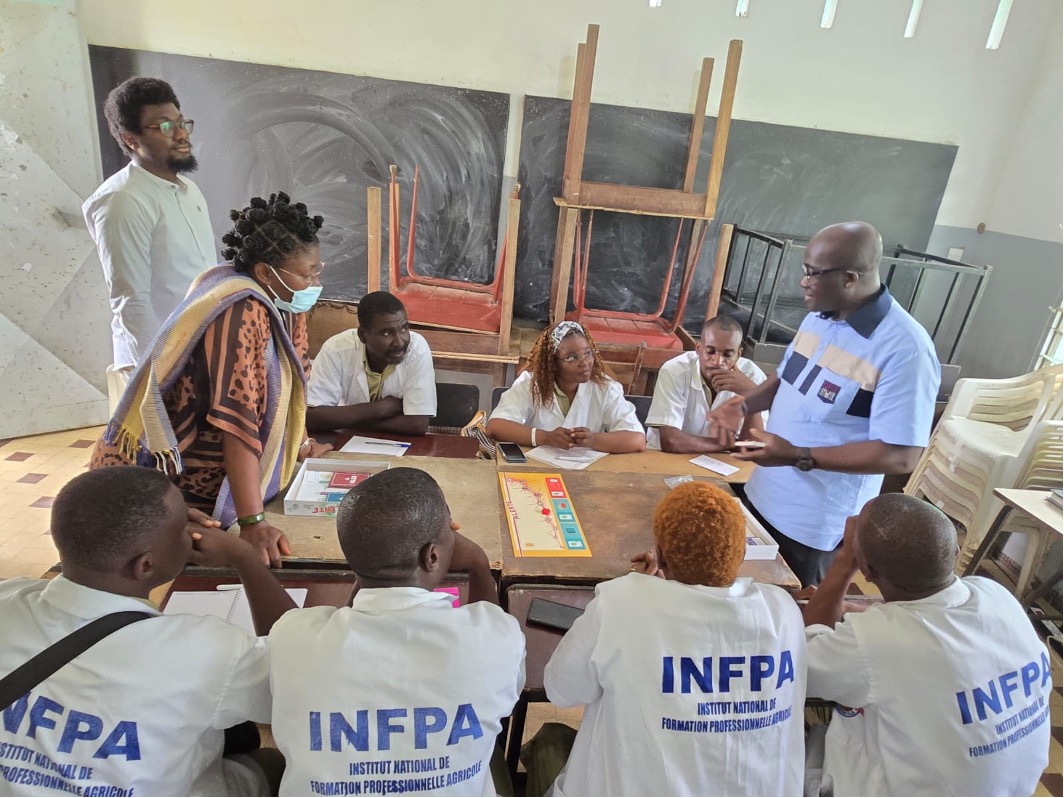
From 17 to 20 June 2025, the World Organisation for Animal Health (WOAH) organised the third session for facilitators of the serious game ALERT in Grand-Bassam, Côte d’Ivoire, as part of the EU-funded ZOOSURSY project.
Following sessions in Dakar (Senegal) and Yaoundé (Cameroon), this latest session marks further progress toward more inclusive and participatory epidemiological surveillance, rooted in local communities.
In total, 14 facilitators from key institutions—including Nangui Abrogoua University, the Ivorian Office of Parks and Reserves, the National School of Water and Forests (ENEF), the army’s veterinary services, the Helmholtz Institute for One Health (HIOH), and the Food and Agriculture Organization of the United Nations (FAO)—received training. The programme was carried out in partnership with the Directorate of Veterinary Services, technical expertise from CIRAD, and the School of Veterinary Sciences and Medicine at the University of Ngaoundéré (Cameroon).
Developed under the EBO-SURSY project in collaboration with CIRAD and BIOVIVA, the ALERT game is far more than just an educational aid. It was designed to raise awareness in local communities about surveillance of animal diseases that could potentially be transmitted to humans, placing these communities at the center of an early warning system.
Amidst a growing number of health crises, the game also aims to strengthen connections among various actors in the surveillance system—Veterinary Services, local authorities, human health personnel, researchers, and environmental managers—to foster a coordinated and sustainable response.
Over the course of four days, participants were introduced to the game’s objectives, mechanics, and facilitation logic. Facilitating ALERT is about more than knowing the rules—it means creating a safe space for dialogue, encouraging collective reflection, and stimulating community-driven dynamics around good surveillance practices.
“The game is an important educational tool. Becoming a trainer has given me concrete tools to simulate epidemiological surveillance scenarios and to better pass on this knowledge to students and surveillance stakeholders in the communities.”
— Moctar Mouiche, lecturer-researcher at the University of Ngaoundéré (Cameroon)
Trained in 2024 in Yaoundé, Moctar Mouiche has since facilitated sessions in Cameroon, Congo, and the Central African Republic—demonstrating the game’s adaptability to various local contexts.
The training concluded with practical sessions at the National Institute for Agricultural Vocational Training (INFPA) in Bingerville, where around fifty final-year students had the opportunity to test the game in real-world conditions.
— Moctar Mouiche, lecturer-researcher at the University of Ngaoundéré (Cameroon)
Each participating institution received a game kit, with the mission to integrate it into their training, outreach, or capacity-building activities. Through this network of trained facilitators, WOAH aims to scale up deployment of the game while maintaining active monitoring of its implementation.
This initiative is part of a broader strategy to build resilient, agile, and locally grounded surveillance systems. In a world where zoonotic diseases pose an increasing threat, strengthening community vigilance through participatory, innovative, and accessible approaches is a public health, social, and environmental imperative.
— Student at INFPA



